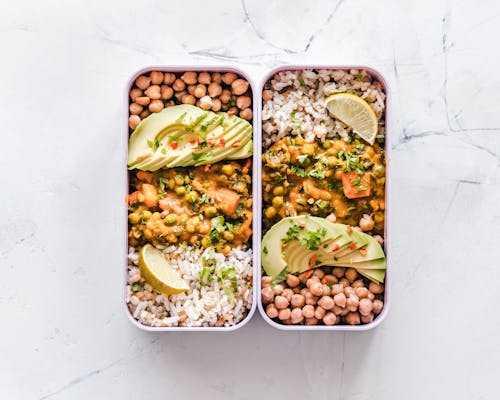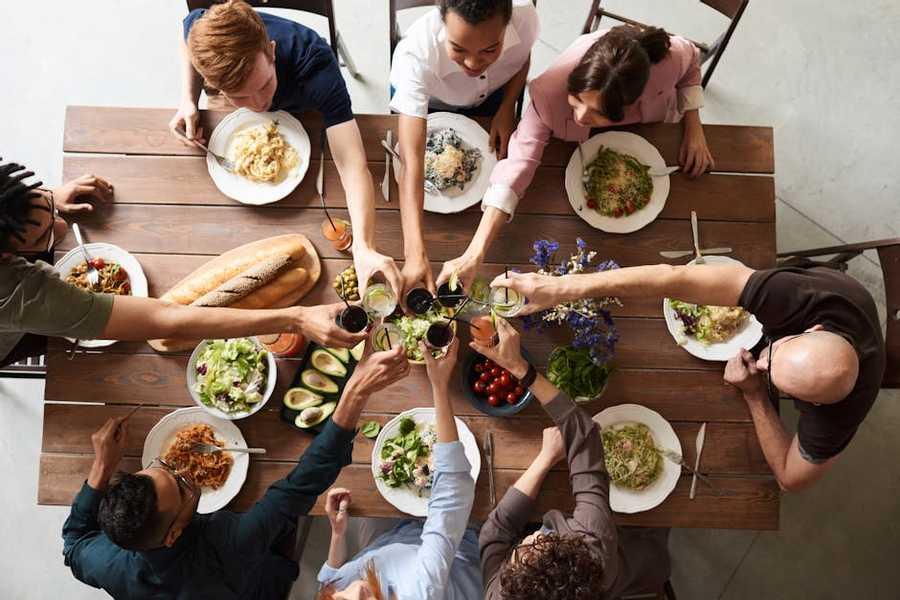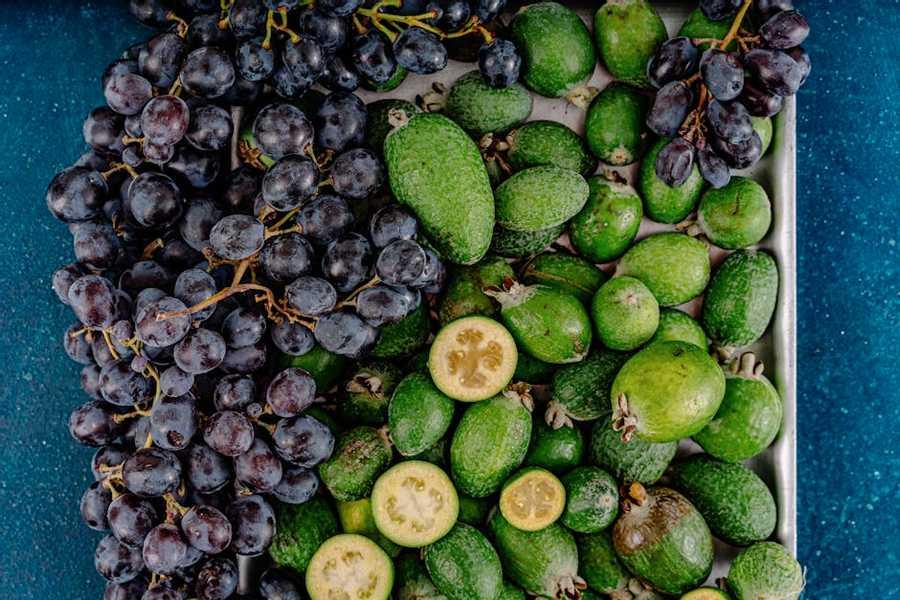Explore the World's Best Ideas
Join today and uncover 100+ curated journeys from 50+ topics. Unlock access to our mobile app with extensive features.
Food Facts: What We Need To Know
- Virtually all of the Type II diabetics, 80% of all cardiovascular diseases and 33% of all cancers are linked to the western diet.
- Populations who eat a wide range of foods (unrefined) do not suffer from these diseases.
- If you get off the western diet, your health can improve.
- Processing food removes nutrients, adds toxins and makes it more absorbable (causing insulin challenges).
- We spend 2 Trillion dollars on health care each year in the United States.
1K
12.9K reads
The Western Lifestyle And Diet
Most people don’t eat enough raw fruits and vegetables. They eat ‘grab and go’ stuff that’s less messy but more high-calorie dense and they eat as they handle multiple tasks. This is not good.
Populations that eat a so-called Western diet—generally defined as a diet consisting of lots of processed foods and meat, lots of added fat and sugar, lots of refined grains, lots of everything except vegetables, fruits, and whole grains—invariably suffer from high rates of the so-called Western diseases: obesity, type 2 diabetes, cardiovascular disease, and cancer.
926
9.36K reads
Key Points
- Eat local, healthy food that your great-grandmother would have recognized.
- Avoid anything processed.
- Buy from your local farmer's market.
- Avoid food products containing ingredients that no ordinary human would keep in the pantry.
- Avoid food products that contain high-fructose corn syrup.
- Avoid foods that have some form of sugar (or sweetener) listed among the top three ingredients.
1.07K
9.93K reads
A Different Diet
Populations eating a remarkably wide range of traditional diets generally don’t suffer from these chronic diseases. These diets run the gamut from ones very high in fat (the Inuit in Greenland subsist largely on seal blubber) to ones high in carbohydrate (Central American Indians subsist largely on maize and beans) to ones very high in protein (Masai tribesmen in Africa subsist chiefly on cattle blood, meat, and milk).
884
7.98K reads
They Make You Sick And Then Charge To Make You Feel Better
There’s a lot of money in the Western diet. The more you process any food, the more profitable it becomes. You are mostly sold processed food as it is highly advantageous for the companies, even though it is an unhealthy diet.
The healthcare industry makes more money treating chronic diseases (which account for three-quarters of the $2 trillion-plus we spend each year on health care in this country) than preventing them.
914
6.81K reads
The Sweeteners Are Not Working
Noncaloric sweeteners such as aspartame or Splenda, research (in both humans and animals) suggests that switching to artificial sweeteners does not lead to weight loss, for reasons not yet well understood. But it may be that deceiving the brain with the reward of sweetness stimulates a craving for even more sweetness.
899
6.65K reads
The Food Rules
- Avoid food products that contain more than five ingredients.
- Avoid food products containing ingredients that a third-grader cannot pronounce.
- Avoid food products that make health claims.
- Avoid food products with the wordoid “lite" or the terms "low-fat" or “nonfat" in their names.
- Avoid foods that are pretending to be something they are not. Imitation butter—aka margarine—is a classic example.
- Avoid foods you see advertised on television. If they have to spend millions to sell it, it's not worth eating.
- Eat only foods that will eventually rot.
1.15K
6.79K reads
It's Not Food If..
- It’s not food if it arrived through the window of your car.
- It’s not food if it’s called by the same name in every language. (Think Big Mac, Cheetos, or Pringles.)
- It's not food if it's not cooked by humans but came out of an industrial plant.
956
7.1K reads
Science Does Not Want To Get Into Why Plants Are So Good
Scientists may disagree on what’s so good about plants—the antioxidants? the fibre? the omega-3 fatty acids?—but they do agree that they’re probably really good for you and certainly can’t hurt.
There are scores of studies demonstrating that a diet rich in vegetables and fruits reduces the risk of dying from all Western diseases; in countries where people eat a pound or more of vegetables and fruits a day, the rate of cancer is half what it is in the United States.
909
5.51K reads
Fewer Calories
By eating a diet that is primarily plant-based, you’ll be consuming far fewer calories, since plant foods—with the exception of seeds, including grains and nuts—are typically less "energy dense" than the other things you eat. (And consuming fewer calories protects against many chronic diseases.) Vegetarians are notably healthier than carnivores, and they live longer.
901
5.17K reads
Eating what stands on one leg [mushrooms and plant foods] is better than eating what stands on two legs [fowl], which is better than eating what stands on four legs [cows, pigs, and other mammals].
MICHAEL POLLAN
964
6.29K reads
Drink The Spinach Water
Another bit of traditional wisdom with good science behind it: The water in which vegetables are cooked is rich in vitamins and other healthful plant chemicals. Save it for soup or add it to sauces.
980
5.89K reads
The Wild Plants
Two of the most nutritious plants in the world —lamb’s quarters and purslane—are weeds, and some of the healthiest traditional diets, like the Mediterranean, make frequent use of wild greens.
The fields and forests are crowded with plants containing higher levels of various phytochemicals than their domesticated cousins.
928
4.76K reads
Eat The Fermented Foods
Many traditional cultures swear by the health benefits of fermented foods—foods that have been transformed by live microorganisms, such as yoghurt, sauerkraut, soy sauce, kimchi, and sourdough bread. These foods can be a good source of vitamin B12, an essential nutrient you can’t get from plants. (B12 is produced by animals and bacteria.)
Many fermented foods also contain probiotics—beneficial bacteria that improve the function of the digestive and immune systems and help reduce allergic reactions and inflammation.
962
4.49K reads
Those Supplements Are Not Working
We know that people who take supplements are generally healthier than the rest of us, and we also know that in controlled studies most of the supplements they take don’t appear to be effective. How can this be?
Supplement takers are healthy for reasons that have nothing to do with the pills. They’re typically more health conscious, better educated, and more affluent. They’re also more likely to exercise and eat whole grains.
898
4.49K reads
Go For Traditional Diets
- People who eat according to the rules of a traditional food culture are generally healthier than those of us eating a modern Western diet of processed foods.
- Any traditional diet will do: If it were not a healthy diet, the people who follow it wouldn’t still be around.
- In borrowing from a food culture, pay attention to how a culture eats as well as to what it eats.
- Pay attention, too, to the combinations of foods in traditional cultures: In Latin America, corn is traditionally cooked with lime and eaten with beans.
915
3.95K reads
Red Wine Is Okay
There is now considerable scientific evidence for the health benefits of alcohol to go with a few centuries of traditional belief and anecdotal evidence. Mindful of the social and health effects of alcoholism, public health authorities are loath to recommend drinking, but the fact is that people who drink moderately and regularly live longer and suffer considerably less heart disease than teetotalers.
911
4.25K reads
How To Eat
- How you eat may have as much bearing on your health (and your weight) as what you eat.
- Pay more, eat less, or as grandmothers used to say, "Better to pay the grocer than the doctor."
- Stop eating before you’re full.
- Ask yourself not, Am I full? but, Is my hunger gone? That moment will arrive several bites sooner.
- Eat when you are hungry, not when you are bored.
- One old wives’ test: If you’re not hungry enough to eat an apple, then you’re not hungry.
- Consult your gut.
- Eat slowly and mindfully.
- Breakfast like a king, lunch like a prince, dinner like a pauper.
- Cook your food yourself.
1.16K
5.53K reads
IDEAS CURATED BY
CURATOR'S NOTE
We have been eating wrong all our lives. This book shakes our belief patterns on food and diet.
“
Jade R.'s ideas are part of this journey:
Learn more about food with this collection
How to set clear objectives
How to follow up after a meeting
How to manage time effectively
Related collections
Discover Key Ideas from Books on Similar Topics
6 ideas
How an Economy Grows and Why It Crashes
Peter D. Schiff, Andrew J. Schiff
20 ideas
The Only Astrology Book You'll Ever Need
Joanna Martine Woolfold
Read & Learn
20x Faster
without
deepstash
with
deepstash
with
deepstash
Personalized microlearning
—
100+ Learning Journeys
—
Access to 200,000+ ideas
—
Access to the mobile app
—
Unlimited idea saving
—
—
Unlimited history
—
—
Unlimited listening to ideas
—
—
Downloading & offline access
—
—
Supercharge your mind with one idea per day
Enter your email and spend 1 minute every day to learn something new.
I agree to receive email updates














